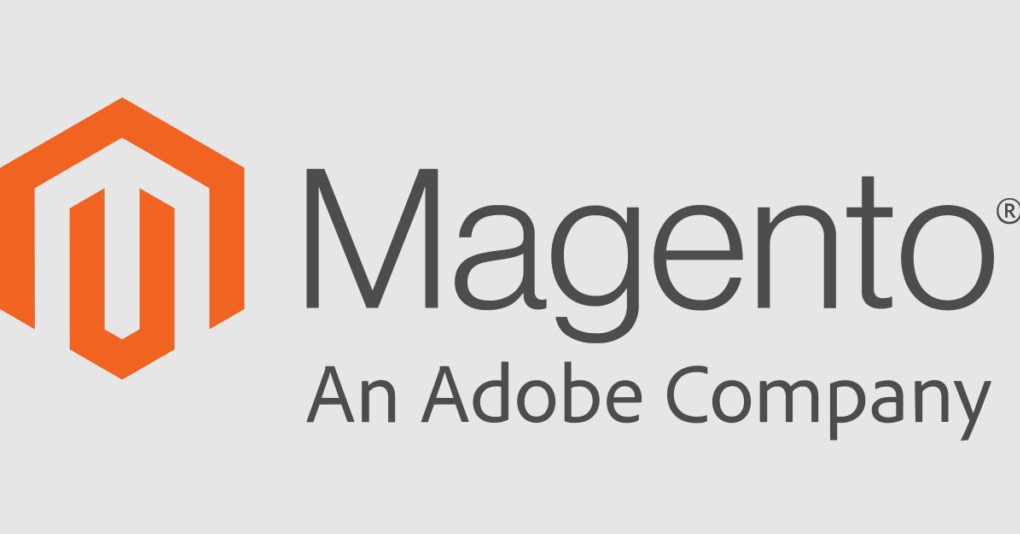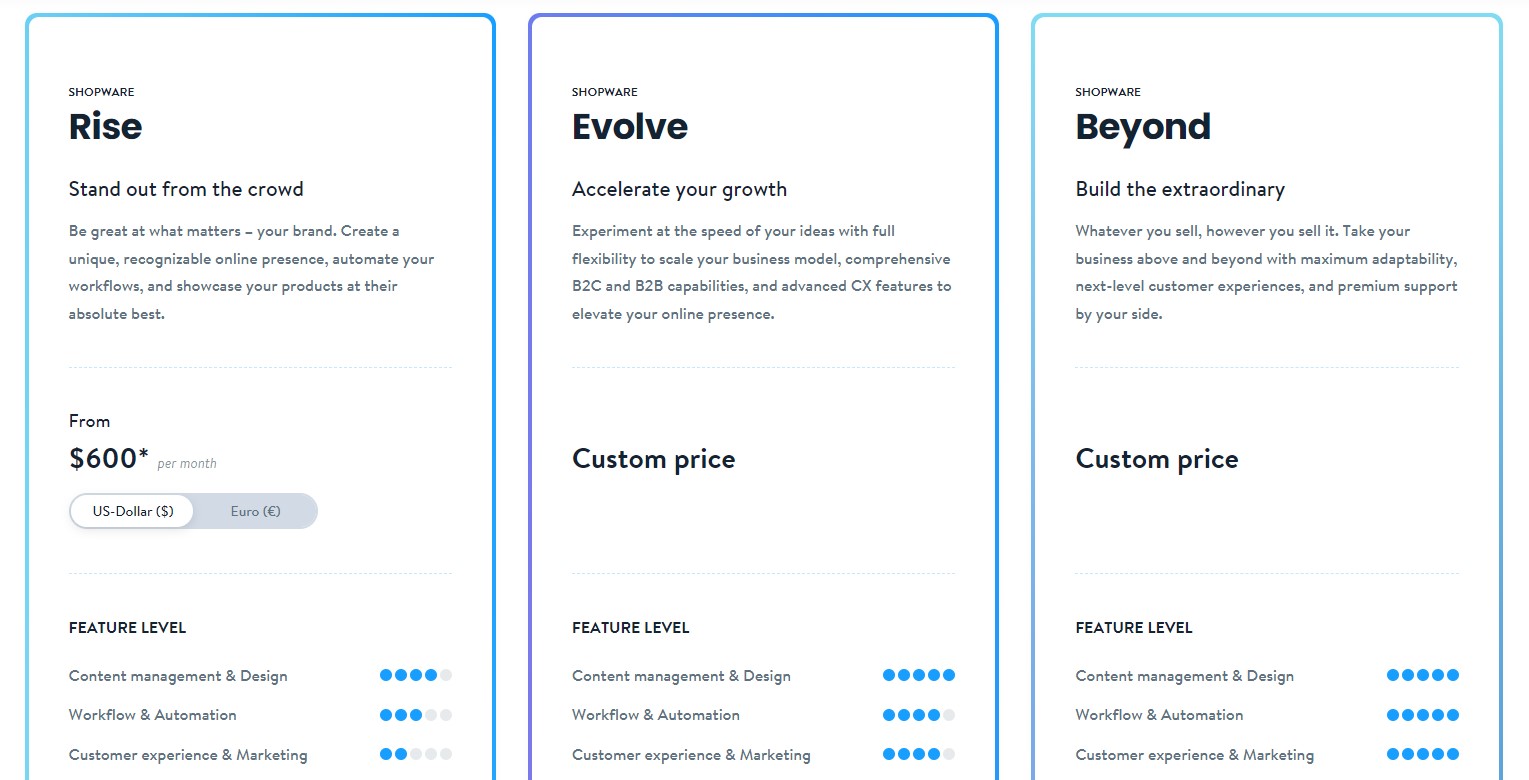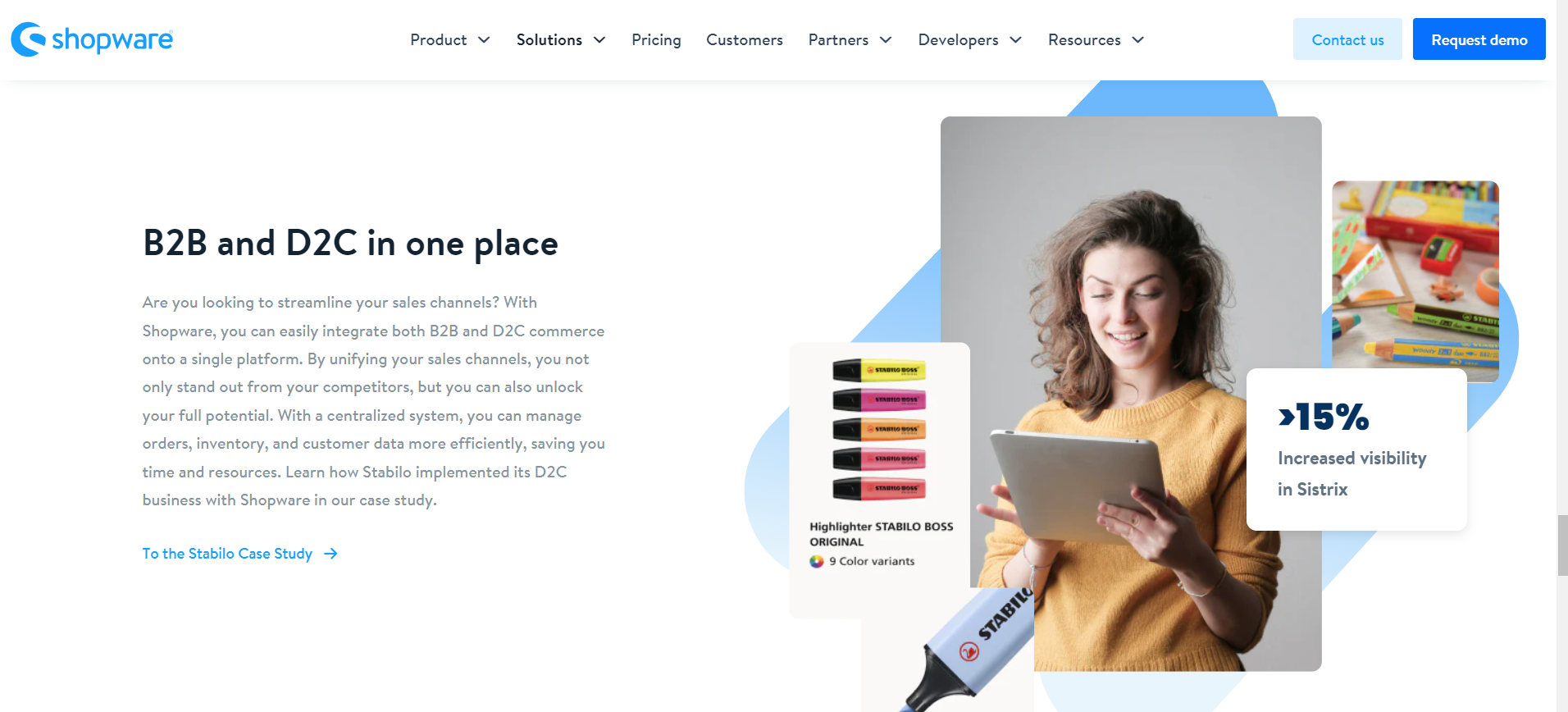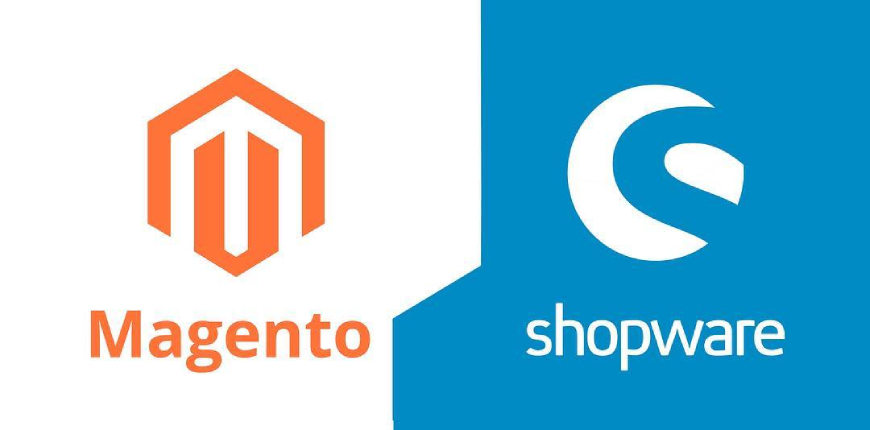Choosing Magento vs Shopware for online business has still been a popular battle as currently, more and more eCommerce systems are available to offer. The wave of shifting from traditional commerce to eCommerce has become a trend that many online businesses have to consider.
Currently, with the development of eCommerce development platforms, it is necessary for the online store owner to have careful research to determine the most suitable solutions. In this article, we will give a detailed comparison between Shopware vs Magento. Both of them are stable and mature shopping cards that supply all the essential features to boost your stores. Thus, to pick the right option between them, you should take the time to read this article.
Let’s get started!
Shopware vs Magento – A General Overview
Table of Contents
Before going to the comparison between Shopware vs Magento, we will provide you with an overview of both two eCommerce development platforms.
About Shopware
Shopware is known as an open-source platform established in 2000 in Germany. It has existed in the eCommerce industry for the last two decades. In the past, Shopware just had a great influence in Germany. However, after 24 years in the eCommerce industry, it is the most well-known progressive platform all over the world.

Shopware’s feature aspect, allows the store owner to modify and extend your store according to your requirements. Besides, it is also an ideal solution to speedily leverage your business growth and focus on upgrading customer experience. Currently, Shopware platform 6.4.8.1 is the latest version and it is continuously updated. You can install these updates through the web interface.
CLICK HERE to find more information about Shopware 6: Shopware 6 tutorial – All you need to know about Shopware 6
About Magento
Magento is a flexible and leading open-source that was founded in 2008. Now, Magento has provided 2 editions: Adobe Commerce and Magento Open Source. While Magento Open Source is used by newcomers or startups because it requires fewer resources to establish, Magento Commerces is used by medium-sized or large-sized enterprises that have established their online stores.

When it comes to its features, Magento provides the owner with an impressive list of extensive features. It also offers unlimited possibilities to tech-savvy merchants.
You can get all the information about the Magento eCommerce platform in this article: What Is Magento ECommerce and All You Need to Know About It
What Are The Differences Between Shopware vs Magento?
We will evaluate these eCommerce development platforms from the perspective of several factors such as Cost, Ease of use, SEO optimization & Marketing tools, Support and Community, B2B or B2C approach, Technology, and many more. Check them now!
#1. Pricing
Before choosing the most suitable solution between Shopware 6 vs Magento 2, one of the key factors that you should consider is the price. Let’s compare these platforms from a pricing perspective.
Shopware
Shopware has provided three plans for store owners: Rise, Evolve, and Beyond.

Shopware Rise
Shopware Rise is the entry-level plan from the Shopware platform. It starts from $600 and can increase based on the turnovers of your business. This plan offers features at the basic level that best fit eCommerce merchants who want to set themself apart from other competitors in the marketplace. The main features of the Rise plan are content management, automation workflow, and marketing tools. They empower your business to streamline customer experience and highlight the products effectively. However, it also has some limited B2B capabilities.
Shopware Evolve
Shopware Evolve focuses on advanced functionalities for merchants looking to scale their business model in the competitive eCommerce landscape. It includes comprehensive functionalities to enhance your online presence and expand wholesale businesses such as flexible and scalable infrastructure, B2C and B2B capabilities, and advanced personalization tools. Evolve plan is designed to support your business growth ambitions and help your business adapt to the rapidly changing eCommerce landscape. Its flexible pricing based on businesses’ sales revenue ensures the costs and extra fees of using the platform align with various types of business.
Shopware Beyond
The most advanced plan of the Shopware platform is Beyond. It is the ultimate solution for businesses seeking to elevate their eCommerce operations to an extraordinary level. With maximum adaptability, CX features, inventory management, analytics tools, and premium support services, merchants can optimize their performance and enhance business operations, driving efficiency and growth. This pricing plan fits businesses with high turnover.
Magento
There are three packages provided by Magento. Technically, Magento is free, however, it comprises the prices in both the necessary and non-essential elements of getting your site online. The price is definitely offbeat as this platform is a suitable option for large eCommerce businesses.
Magento Open Source
This version is free to install, however, it requires you to pay for your domain, hosting, and security. In the situation that you do not have enough time and technical skills, you can cooperate with a website developer to find the optimal solution. You should bear in mind that the expenses for this edition are around $50-$80 per hour.
Magento Commerce
This edition is extremely suitable for enterprise-sized businesses as it provides more upgraded functionality. There are many features that this edition gives, such as promotions and pricing, catalog management, catalog browsing, customer loyalty, customer accounts, support for global sites, analytics, and reporting, layout, and theming, etc…
The price of this edition relies on your sales revenue. However, the Magento Commerce Cost is not under $22,000 per year.
Magento Commerce Cloud
This edition is only suitable for large businesses dealing with a huge amount of sales data. In addition, the Cloud is where you can store data, rather than a hard drive which can cause data loss in some technical situations. With many advanced features, the price for this edition is far higher than the previous editions. The Magento Commerce Cloud is not under $40,000 per year, depending on your store’s average gross sales revenue.
Besides the packages you chose, there are additional expenses, such as web hosting, domain cost, SSL certificate cost, themes, payment fees, etc…
This post below provides comprehensively core Magento costs to custom a new website: All Must-know Magento Costs to Build A Basic to Custom Magento Website
In conclusion, from a price perspective, Magento is an expensive option for merchants as it is only appropriate for larger businesses with a generous budget. Meanwhile, Shopware is a more suitable and reasonable platform for all types of business.
#2. Ease of use
In the battle of Shopware vs Magento 2, which is easier to modify the underlying code in the way you need? Let’s find the answer in the following information!
Shopware
Shopware is approachable for both customers and online store owners. Maybe, in the beginning, you may deal with many difficulties when setting up as it is still a problem for many web developers.
Shopware’s administration had not still divided into individual windows. However, it has been upgraded, so you can open multiple windows and have a clear overview of the data you need. The central location of this Shopware platform is to show multiple settings in a cleaned overview. The store owners can use the individual area to configure Shopware.
For instance, you can view the orders received, control the customers, and create excellent shopping experiences. Users can get permission to the backend of the demo shop in advance, collect sales data, and make fundamental shop changes. In addition, it simplifies your store management and requires less time in the back-end. Therefore, the customer can take full advantage of those features when kicking off the shop, which makes changes directly.
To sum up, Shopware is quite easy to use for all store owners, even for non-tech merchants.
Magento
Magento is packed with many features, so it is quite complicated to use. Although the connection to the Admin Panel and daily operations are quite easy to use, the initial setup of the store and customization process is quite complicated. This platform is not user-friendly for non-tech online store owners. Thus, users have to take more time to read the instructions or cooperate with experienced developers to support them in creating and operating their businesses.
The user interface of the latest Magento versions has positively improved as it brings improvement in the interface that streamlines the research of data in the Admit Panel and allows the creation of new content. To make navigation easier, all-important categories including products, customers, marketing, and content management, are on the sidebar. Therefore, it is undeniable that Magento is trying its best to bring its customers convenience and ease of use.
In conclusion, it is necessary for merchants to have technical and coding skills to operate Shopware and Magento. It is undeniable that both platforms are quite simple in daily operations. However, Magento is more complicated in the setup and customization process. Thus, if you want to utilize all the advantages of Magento’s features, it is necessary for you to take time to scroll through its tutorials. That is the reason why many store owners choose to use Shopware due to its user-friendliness.
#3. SEO optimization & Marketing tools
The merchants can not deny the role of SEO optimization and Marketing tools which create effective marketing strategies to increase brand awareness in the eCommerce industry. Let’s take a look at SEO optimization & Marketing tools of the Shopware platform and Magento platform.
Shopware
Regarding SEO & Marketing, the Shopware SEO tool gives an effective Google ranking. In addition, it offers excellent features for sales promotion. Although SEO setting processes are arranged automatically, they can be modified whenever needed.
Take Storytelling as an example, it makes your store authentic and unique. This emotional catalyst will promote the shopping experience. Whenever you click or touch on the image of any product, you will have more information about this item. This engaging approach creates an excellent buying experience and contributes to exceptional usability.
In addition, Shopware also provides SEO plugins to upgrade the traffic and conversion rate. For instance, an SEO professional plugin comes with a large number of SEO settings or optimization in just one plugin.
Magento
Magento has rich SEO features to support merchants in maintaining strong relationships with buyers and increasing traffic to the store. There are many out-of-the-box settings in the Magento platform such as metadata products and pages, canonical tags, optimizing images, editing robot.txt files for categories and items, etc… You also can create multiple coupons for certain online stores by using Magento.
For example, you can export coupon codes through email, and newsletters for marketing campaigns. Another excellent feature of Magento is reward points. The goal of this feature is to encourage customers to come back and buy more to get rewards.
In fact, there are many different marketing features based on the plan you choose. For Magento Open Souce, there is an SEO & Marketing plugin in the Magento marketplace to extend and install the possibilities.
Currently, there are around 469 marketing plugins from developers worldwide. Therefore, you can choose the plan that is most suitable for your project. We highly recommend Magento 2 SEO Suite by BSS Commerce due to its rich features. This extension can handle a wide range of on-page SEO activities and comes with advanced HTML and XML sitemaps, SEO redirects, and upgraded rich snippet functionality.
To sum up, we would conclude that the Magento platform is the better SEO and marketing platform as it gives SEO-friendliness and simplifies the management, payment, delivery, and checkout processes for store owners. However, the advanced tooling framework is quite complicated to handle.
>>> Elevate your Magento store with BSS Commerce Extensions Magento – designed to enhance functionality, optimize user experience, and drive conversions. Explore now to find the perfect solution for your business needs!
#4. Support and Community
The next aspect that we want to mention is about support and community.
Shopware
Currently, Shopware’s membership number is around 40,000. This platform offers both free and paid assistance. Thus, the users can choose between a free forum or a developer’s guide to subscribe to one of two paid advanced feature packs.
Shopware customer support is associated with a monthly fee and therefore, you will be provided good quality support. The technical account manager is used for dealing with inquiries and Shopware-related problems. There are two Shopware forums where any relevant question about Shopware will be answered. In those forums, German and English are the two languages that are used to communicate. In addition, Shopware has an academy that provides live training, webinars, and certifications.
Magento
One of the advantages of Magento is a massive community in comparison with other eCommerce communities. Magento is one of the largest developer concentrations with over 150,000 active members all over the world, which makes it easier to find answers.
Magento does not give customer support. This platform does not provide live chat, phone, or email support for store owners. If you do not register for the Magento Commerce Cloud, you will deal with many difficulties with technical problems. However, the Magento platform has blogs and forums that provide informative and knowledge-based reviews and tips. Otherwise, you can seek Magento tutorials and support from Magento service providers or other merchants. It can be an effective way for you to enhance your knowledge.
The battle of Shopware vs Magento in terms of support and community has given an obvious result. Shopware clearly outweighs Magento due to its outstanding support system.
#5. B2B or B2C approach
No matter which platform you choose, those are robust and scalable enough to establish a store. While Magento chooses the B2B approach, Shopware uses the B2C approach. B2C differs from B2B as it directly sells products to customers. So, Magento vs Shopware, which approach will be interesting to you? Keep reading to find the better approach!
Shopware
Shopware is oriented to use the B2C market as it mainly concentrates on storytelling and positive customer experience. This is really suitable for small or medium-scale companies such as the Art of Lifestyle industries. Shopware is less suitable for the B2B approach because of differences in its functionality.

Magento
While Magento utilizes both business models, it performs extremely well in B2B with a wide range of areas. Magento is a leader in B2B commerce that serves about 41 merchants on the list of Internet Retailer B2B eCommerce Top 300. Managing inventory will become easier as it allows you to create delivery timetables and track inventory across multiple warehouse locations. In addition, it also offers negotiated pricing clauses for buyers.
Although it is quite difficult for both B2B and B2C models to fit well and adapt quickly to all eCommerce demands, the Magento platform can fit perfectly to almost medium and large-sized businesses.
Magento global partners provide a wide range of B2B extensions Magento 2 that cater specifically to the needs of businesses operating in a B2B environment.
#6. Technology
Regarding the technology aspect, which platform will be the winner?
Shopware
Shopware is equipped with top-notch technology, which allows it to be more competitive in the development of eCommerce. This comprises PHP7 which facilitates the coding routines. One of its unique features is the open-source API which allows you to connect with any third-party solution and make individual customizations.
Magento
Magento has stayed at the top of the list of eCommerce platforms. It supports Nginx by default and works with Apache PHP, MySQL, and others. Magento ensures the smooth when running store to save time and money.
To sum up, Magento is quite better in comparison with Shopware in the technology aspect.
Shopware vs Magento – Which One Is More Suitable For Your Online Store?
Regardless of the competition between Shopware vs Magento, those two platforms have got the faith and loyalty of many internationally renowned corporations.
Between Magento 2 vs Shopware 6, Magento would be an excellent solution for those who are able to spend more money to expand their business. However, it is quite challenging for skillful developers as getting the operation ideas can take a lot of time. On the contrary, Shopware, one of the Magento Alternatives is quite easier and cheaper to use and navigate, this is likely to match the demands of small to medium business owners.
From now on, you should start your website with Shopware or Magento platform. Please remember that Shopware is more suitable for small to medium businesses, but one limitation for Shopware extensions is that it only comes in the German and English languages. Magento can be a good option for medium to large enterprises with a huge range of module, but it can take more time to set up your business. All in all, both platforms are worth considering to become your business solution.
BSS Commerce – a reliable Shopware and Magento provider
We do hope that this article will help you choose the more suitable solutions for your online store. Those platforms give you the opportunity to access a wide range of unique features that allow entrepreneurs to control their businesses more effectively.
At BSS Commerce, a reliable and reputed eCommerce development company, we are providing both services for these platforms.
With over nine years of experience in the eCommerce industry, BSS Commerce believes that we can set up your store to promote sales and stand out in this competitive market. We have cooperated with over 21,000 customers worldwide and completed over 500 successful projects. Our top priority is to give the customer a satisfactory experience. We also give you consultation while choosing the platform by your demands, target audience, and much more.
Let’s take a tour of our Shopware development services!
- Strategy: UX/UI Design and Strategic Consulting.
- Development: Mobile App Development, Website Development, Plugin Development, and Platform Migration.
- ECommerce Acceleration: Speed Optimization, Integration, and Feature Enhancement.
- Support and Maintenance: Web Maintenance, Web Testing On Demand, and Code Audit.
Now, we will turn to our Magento website development service!
- Consulting
- Integration
- Deployment
- Maintainance and Optimization
FIND OUT more about our Magento website development services:
For more details about our services, please do not hesitate to contact us. We are here to listen and deal with your problems.

